Foods that support cardiovascular health by encouraging lower cholesterol levels, lowering inflammation, and maintaining appropriate blood pressure are ones that are excellent for your heart. By incorporating these heart-healthy foods into your diet, you can reduce your risk of developing heart disease and enhance your general health.
A brief description of some of these foods is provided below
Fatty Fish, Omega-3 fatty acids, which are abundant in fatty fish like salmon, mackerel, sardines, and trout, have been demonstrated to reduce inflammation and cut the risk of heart disease.
Nuts and Seeds, Almonds, walnuts, chia seeds, and flaxseeds are great sources of antioxidants, fiber, and healthy fats that help keep cholesterol levels in check and lower the risk of heart disease.
Oats, brown rice, quinoa, and whole wheat are examples of whole grains that are high in fiber, vitamins, and minerals. They can promote heart health by lowering levels of LDL (bad) cholesterol.
Berries are rich in antioxidants that can lower oxidative stress and inflammation in the body, which is good for the heart. Blueberries, strawberries, raspberries, and blackberries are particular antioxidant powerhouses.Leafy green vegetables, Kale, collard greens, and spinach are full of vitamins, minerals, and antioxidants that promote heart health and decrease blood pressure.Avocado, Avocado is a fantastic source of monounsaturated fats, which, when utilized to substitute bad saturated fats, can lower LDL cholesterol levels.
Lycopene, an antioxidant found in abundance in tomatoes, may help lower the risk of heart disease.
Legumes, Rich in fiber and protein, beans, lentils, and chickpeas can help decrease cholesterol levels and enhance heart health.
Dark Chocolate, Dark chocolate with a high cocoa content (70 percent or more) includes flavonoids that may improve blood flow and lower blood pressure, so promoting heart health.
Extra virgin olive oil, Monounsaturated fats and antioxidants included in extra virgin olive oil are good for you and can help prevent heart disease.
Garlic, Studies have linked garlic to lower blood pressure and cholesterol levels, among other heart-health advantages.
Green Tea, Green tea has a lot of catechins, an antioxidant that may help your heart by encouraging healthy blood vessels and lowering inflammation.
It's important to keep a balanced and generally healthy eating pattern, avoid processed foods, and lead an active lifestyle in addition to including these heart-protective items in your diet. It is best to seek individualized guidance from a healthcare provider or a trained dietitian if you have particular health issues or dietary limitations.
Oranges, lemons, grapefruits, and other citrus fruits are high in vitamin C and flavonoids, which may support healthy blood vessels and reduce inflammation, so enhancing heart health.
Pomegranate, Packed with antioxidants, pomegranates are especially high in punicalagins and anthocyanins, which have been found to have heart-protective benefits by lowering oxidative stress and raising cholesterol levels.
Broccoli is a cruciferous vegetable high in fiber, vitamins, and minerals including potassium that can promote heart health and help control blood pressure.
Sweet potatoes, Rich in potassium, fiber, and antioxidants, sweet potatoes help to keep blood pressure in check and promote heart health.Red Wine, Red wine contains resveratrol, a polyphenol that may have heart-protective properties when consumed in moderation. But moderation is essential because drinking too much alcohol might harm your heart.Curcumin, a substance in turmeric with anti-inflammatory characteristics, may help the heart by lowering inflammation and enhancing blood vessel function.Yogurt, Low-fat or Greek yogurt is an excellent source of calcium, potassium, and probiotics, which help to maintain a healthy blood pressure and gut flora and hence improve heart health.
Products made from soy
Foods like tofu, tempeh, and soy milk include isoflavones, plant-based proteins that have been linked to decrease cholesterol and a lower risk of heart disease.
Beets, Rich in nitrates, which can enhance blood flow and reduce blood pressure and support heart health, beets are a good source of nutrition.
Cinnamon, Cinnamon has been connected to potential heart advantages, such as better blood sugar and cholesterol management.Onions, Onions include quercetin, an antioxidant that lowers inflammation and enhances blood vessel performance, perhaps preventing heart disease.Watermelon, Lycopene and citrulline, both of which are abundant in watermelon and may be beneficial for heart health.
Even while these foods may be good for heart health, it's still important to have a well-rounded diet that includes a range of nutrient-rich foods.
To optimize the advantages for cardiovascular health, it's also crucial to combine a heart-friendly diet with frequent exercise and other good lifestyle choices. To create a specialized and appropriate food plan if you have any pre-existing cardiac ailments or other health issues, it is always better to speak with a healthcare practitioner.
Asparagus, Asparagus is full of antioxidants, vitamins, and minerals including folate, which can protect the heart and lower the risk of heart disease.
Kiwi, Kiwis are rich in vitamin C, vitamin K, and potassium, all of which support good blood pressure and lower the risk of blood clots, supporting heart health.Chia Seeds, Rich in protein, fiber, and omega-3 fatty acids, chia seeds can help decrease cholesterol and promote heart health.
Brussels sprouts, Rich in antioxidants like vitamin C and fiber, Brussels sprouts may be beneficial for heart health.Brown Rice, A whole grain rich in fiber, magnesium, and selenium, brown rice is beneficial for heart health.Lentils, Lentils are a heart-healthy food because they are a rich source of protein, fiber, and a number of vitamins and minerals.Oranges, Rich in potassium, fiber, and vitamin C, oranges can improve heart health and reduce the risk of heart disease.
Young soybeans, often known as edamame, are a good source of protein, fiber, and antioxidants that are good for the heart.Red bell peppers, Rich in antioxidants and vitamins A and C, red bell peppers provide anti-inflammatory and heart-health benefits.Oatmeal, Because it contains soluble fiber, which can lower LDL cholesterol levels, oatmeal is a heart-healthy breakfast option.Sunflower Seeds, Sunflower seeds are a good source of protein, healthy fats, and vitamin E, all of which are good for the heart.Beets- Nitrates, which can enhance blood flow and lower blood pressure and so support heart health, are present in beets.Raspberries, Due to their high fiber content and antioxidant content, raspberries may help to protect the heart and lower the risk of heart disease.
Beta-carotene, which can be found in carrots and is a rich source of it, may be beneficial for the heart.
Apples, Apples are a heart-healthy fruit option because they are rich in fiber and many antioxidants.
Pumpkin Seeds, Pumpkin seeds are an excellent source of magnesium and heart-healthy lipids.
An essential component of preserving cardiovascular health is eating a heart-healthy diet.
A heart-healthy lifestyle also includes getting enough sleep, quitting smoking, controlling stress, and engaging in regular exercise. Always seek the advice and direction of a healthcare practitioner or a trained dietitian if you have any particular dietary issues or medical conditions.
Brown Lentils, Brown lentils are a fantastic complement to a heart-healthy diet since they are high in protein, fiber, and a variety of minerals.
Beta-glucan, a form of soluble fiber that can lower cholesterol and enhance heart health, is a component of the whole grain barley.Watercress, A leafy green that is rich in vitamins, minerals, and antioxidants and is high in nutrients, watercress is good for your heart.Cabbage, A cruciferous vegetable, cabbage contains substances that may have heart-protective properties.Cauliflower, A multipurpose vegetable with a decent supply of fiber, vitamins, and minerals is cauliflower.Kiwifruit, Kiwifruit is a great source of potassium, vitamin K, and vitamin C, all of which are good for your heart.Hemp Seeds, Hemp seeds are an excellent plant-based source of protein and omega-3 fatty acids, both of which are good for the heart.Flaxseeds, Flaxseeds are yet another top-notch source of fiber and omega-3 fatty acids from plants, both of which support heart health.Cacao Nibs, Cacao nibs are tiny bits of unsweetened, raw cacao beans that contain flavonoids that may be beneficial to heart health.Sardines, Sardines are a heart-healthy fatty fish that are high in omega-3 fatty acids.Asparagus, Due to its high nutrient content and availability of vitamins and minerals, asparagus is a heart-healthy vegetable.Cantaloupe, Cantaloupe is a fruit that is refreshing and high in vitamins A and C, both of which are good for the heart.Artichokes, Artichokes are heart-healthy since they are a high source of fiber and antioxidants.Whole-Wheat Pasta, Whole-wheat pasta is better for your heart health because it has more fiber and nutrients than refined pasta.Red lentils, Red lentils are an easy-to-prepare legume that boosts the protein and fiber content of food, promoting heart health.Dark Leafy Greens, Foods that are high in nutrients that support heart health include Swiss chard, collard greens, and arugula.Brown Bread, Brown flour is used to make whole-grain bread, which has more fiber and nutrients than white bread and is therefore a heart-healthy option.Lean Poultry, Turkey and skinless chicken are lean forms of protein that are good for the heart.Pistachios, Pistachios are a type of nut that can lower cholesterol and enhance cardiovascular health.Spinach, This leafy green is a powerhouse of vitamins, minerals, and antioxidants that are good for the heart.
An overall healthy lifestyle includes a heart-healthy diet.
To enhance their effects and improve cardiovascular health, combine these heart-healthy foods with routine exercise, stress reduction, enough sleep, and quitting smoking. As usual, if you have special dietary concerns or medical issues, speak with a medical expert or a qualified dietitian.
Brussels sprouts, Rich in fiber, vitamins, and minerals, Brussels sprouts help improve heart health and general wellbeing.
Mangoes, Mangoes are high in antioxidants, vitamins A and C, and other nutrients that promote heart health.Chinese cabbage of the variety known as bok choy has a low calorie count and a high nutritional content, making it a heart-healthy option.
Wild Rice, A heart-healthy whole grain, wild rice is rich in fiber, antioxidants, and vital minerals.
Mung beans, Mung beans are a good source of fiber, protein, and other nutrients that are good for the heart.
Celery, The phthalides found in celery may help decrease blood pressure and support heart health.Papaya, Papaya is a tropical fruit that promotes heart health by being high in vitamins, minerals, and antioxidants.Brown Basmati Rice, Brown Basmati rice is a tasty whole grain that has nutrients and fiber that are good for the heart.Radishes, High in potassium and low in calories, radishes can help maintain heart health.Arugula is a spicy leafy green that contains a significant amount of nitrates, which may be beneficial for heart health.
Low-fat cottage cheese is a dairy product that is high in protein and can be incorporated into a diet to promote heart health.
Pecans: Pecans are a type of nut that contain antioxidants and heart-healthy lipids.
Black beans: Black beans are a fantastic source of fiber and protein, which helps to maintain heart health.
Steel-Cut Oats: Oats that have had minimum processing and are high in soluble fiber are good for the heart.Green peas: Green peas are a heart-healthy source of fiber, vitamins, and minerals.
Radicchio is a form of chicory that contains antioxidants that may be good for the heart.
Paprika is a spice made from peppers that has ingredients that may be good for the heart.
Whole Wheat Tortillas, As a heart-healthy substitute for refined flour tortillas, whole wheat tortillas offer fiber and nutrients.Quinoa is a healthy grain with a full protein that may benefit heart health.Unsweetened coconut contains medium-chain triglycerides, which may have some favorable effects on the heart.
You may greatly enhance your heart health by including a range of these heart-healthy foods in your meals. These foods can promote general cardiovascular health, lower cholesterol, and reduce inflammation when included in a balanced diet. Always get specialized guidance from a medical expert or a qualified dietitian, especially if you have any particular medical conditions or dietary concerns.
Here you can select best "Supplements"
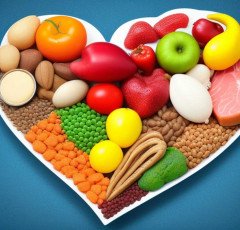






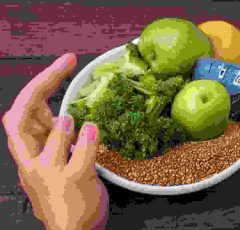
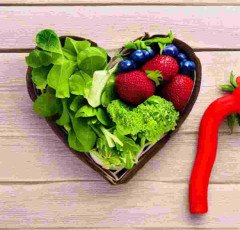




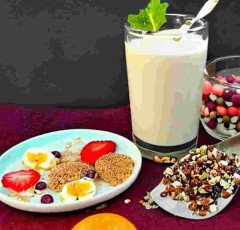





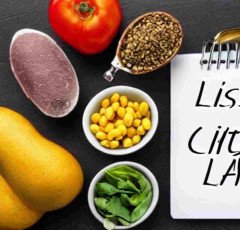






































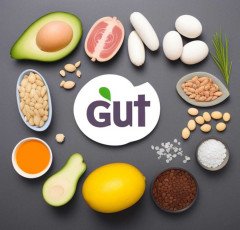
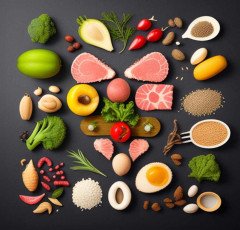




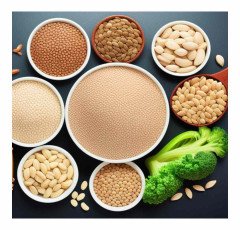













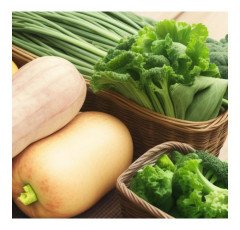



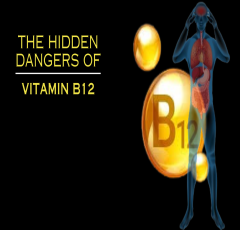






 Sennheiser
Sennheiser  Online Marketing
Online Marketing  Amazon Best Selling Products
Amazon Best Selling Products  ASPINAL LONDON
ASPINAL LONDON  Men Clothing
Men Clothing  Unlimited access to classes on illustration, photography, design, film, music
Unlimited access to classes on illustration, photography, design, film, music  ELECTRONIC ACCESSORIES
ELECTRONIC ACCESSORIES  Unreal Engine 5 For Beginners Learn The Basics Of Virtual Production
Unreal Engine 5 For Beginners Learn The Basics Of Virtual Production  Creative Brief For Video Shoot
Creative Brief For Video Shoot  BEST SELLER TOP10
BEST SELLER TOP10  All Wireless Products
All Wireless Products  Graphics & Design
Graphics & Design  Online Technology Classes
Online Technology Classes  Artificial Intelligence
Artificial Intelligence  NordVPN
NordVPN  NordLocker
NordLocker  Best Home Appliances
Best Home Appliances  Top Rated From Amazon
Top Rated From Amazon  Smart Doorbell
Smart Doorbell  RPM 3.0
RPM 3.0  Hot Bags For Pain Relief
Hot Bags For Pain Relief  Acer Laptop
Acer Laptop  SOFAS
SOFAS  1150+Trendy kids coloring pages Bundle
1150+Trendy kids coloring pages Bundle  TitTok Revolution
TitTok Revolution  Women Fashion
Women Fashion  Best Sellers On Amazon
Best Sellers On Amazon  The Secret Email System
The Secret Email System  Best Selling Books
Best Selling Books  Best Robotic Vacuum Cleaners
Best Robotic Vacuum Cleaners  The Click Engine
The Click Engine  Only For The United States
Only For The United States  One World Collection
One World Collection  NordPass
NordPass  SEO Checklist
SEO Checklist  Favorite Company (Cuelinks)
Favorite Company (Cuelinks)  Hello Theme
Hello Theme  ASUS Laptop
ASUS Laptop 
















